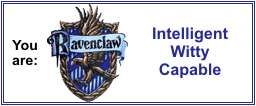I cannot beleive I forgot about the 50 Greatest Books series. I havent posted about them for quite a while. This is bad. This is very bad. But I guess it's because I have gone back to school. I must try and remember to keep doing this series.
The Theban Trilogy By Sophocles
PETER STOTHARD
September 6, 2008
Almost 2,500 years ago, when there were few books to read and a fast-expanding population of the curious, an Athenian playwright dramatized three big questions in three great tragedies. Where do I come from? How do I prepare for my death? What should I obey?
Each play in Sophocles's Theban Trilogy, as we call it, was about the mythical family of Oedipus, rulers of Thebes in the dark times before the Trojan War. Their common theme was the violent birth of civilized values. This was not just entertainment for Athens' mass audience of citizen spectators. These works forced an aggressive engagement with what became great issues of all times, what it means for a man to understand himself, to have free will and at the same time to believe in the gods, to balance duties, to take responsibilities for past and future.
Oedipus the King, the most famous of the three, is the story of a man deliberately finding out who he is. To his own and others' horror, he is the killer of his father and the husband of his mother. He is the monarch honoured for curing the city's plague who discovers that he is its cause. He is the determined detective who finds that the criminal is himself.
In Oedipus at Colonus, the longest and least known, the king is outlawed, cursed and aged. He is preparing himself for death, for possible redemption, for something different from life or something the same. Antigone, the most popular of the plays today, takes up the narrative when Oedipus's sons are also dead, each killed by the other in civil war. Universal divine law demands burial for them both. Theban law offers respect for the defender of the city alone. Their surviving sister has to choose which law is right - and dies for her choice.
Sophocles did not himself intend these plays as a trilogy. Antigone was the first to be written, when Athens was at the height of its democratic power and pride, the years of restless skepticism, empire and the building of the Parthenon. Oedipus at Colonus was the last, composed 40 years later, when Athenian democracy was shamed and close to its end. Oedipus the King came between the two, timed when the Athenians at war knew directly the plagues of their own. The horrors of Thebes - Athens' authoritarian neighbour with its crude and brutal past - were like a primeval swamp into which Sophocles could dip for whatever need he saw.
Later producers, publishers and readers reordered the plays according to their place in the mythical history that they described. First comes King Oedipus in power and glory, before discovering his past and blinding himself. Second, Antigone leads him to a fragile security and serenity for death at Colonus, the place of Sophocles's own birth. Third, Antigone herself is walled up for death by starvation, punished by Thebes for obeying the gods, pardoned through force of argument, but not in time to save her.
That has been the most satisfying order. Like the history plays of Shakespeare, a chronological cycle imposed after their creation has enhanced their appeal for those who do not have Thebes as a neighbour and who have reading choices of which Sophocles could never have dreamed.
Oedipus the King was the central model for Freud, albeit denigrated by him as a dull tragedy of fate redeemed by his own sense of its universal particularities; there is no deeper exposition of the pain of self-examination. Antigone was the inspiration for Jean Anouilh in Nazi France; there is no plot more subtly resonant of the divided responsibilities of good men under bad government. Oedipus at Colonus may be the most due for revival, the eloquent play of the homeless in a land of plenty, the polluted in a land of high religion, the play in which a curse can finally become a blessing.
Individually, they have different powers today. Together, they form one of the milestones in the emerging of humanity, a lighthouse against the rocks, a permanent warning of places that are never far away.
Subscribe to:
Post Comments (Atom)









No comments:
Post a Comment